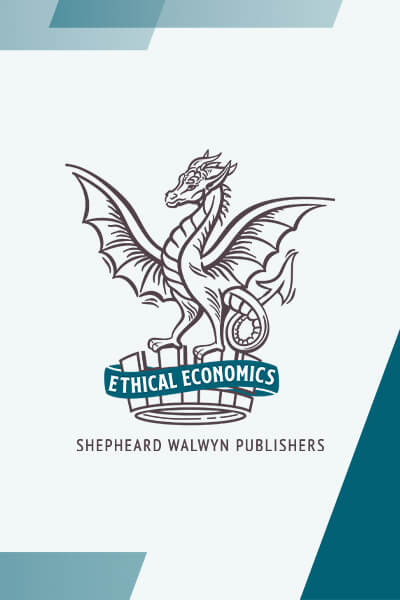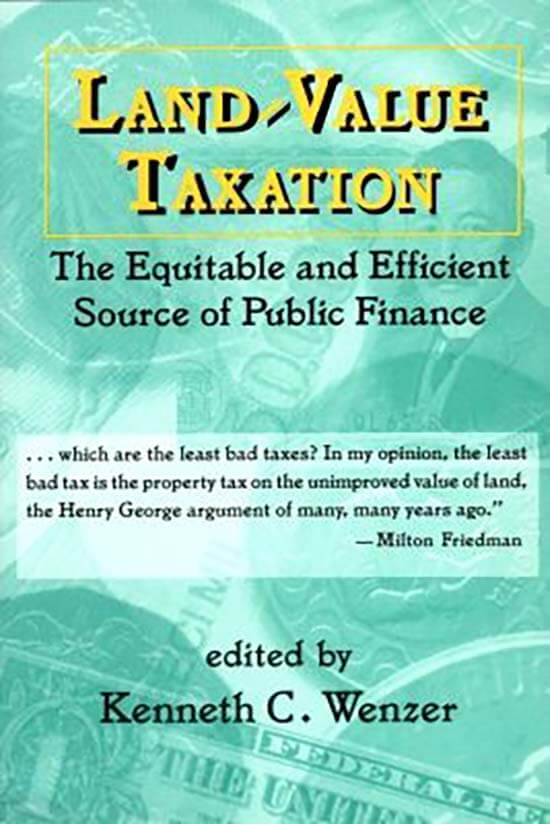‘…which are the least bad taxes? In my opinion, the least bad tax is the property tax on the unimproved value of land, the Henry George argument of many, many years ago.’ Milton Friedman
The recent publication of the Mirrlees Review highlights the urgent need for simplification of the British tax system. The Review calls for an overhaul of a system that is ‘opaque and unnecessarily complex’ (1). Sir James Mirrlees, Nobel Laureate and chair of the Review, says ‘[the tax system] discourages saving and investment and distorts the form they take… Some of the recommended reforms involve tweaks to current policy, others involve radical change’. (2) He admits that some of the changes would be politically difficult, and in defence of the recommended rise in VAT he states, ‘the key element is that this is part of a package. Benefits and rates also have to be changed. I’d like to think people would understand.’ (3)
The Times reported that with regard to housing tax, the Review concludes that ‘stamp duty [should] be scrapped in favour of a council-tax type payment that rises in line with the value of the property’, (4) thus accruing the benefits locally.
In Chapter 16 of the Review, the possibility of land taxation is considered:
‘Land and property should be thought of as distinct bases for taxation, although in most countries taxes are levied on the combined value of property and the land on which it is located. William Vickrey, a Nobel Prize- winning economist, argued that “The property tax is, economically speaking, a combination of one of the worst taxes—the part that is assessed on real estate improvements …—and one of the best taxes—the tax on land or site value”. Later in this chapter, we argue that there are in fact good reasons for taxing housing as well as the land on which it stands; but as far as business property is concerned, Vickrey had it exactly right.’ (5) For more on LVT by Vickrey, see Land-Value Taxation (Shepheard-Walwyn 1999).
The Review lists several benefits of LVT:
– it is equivalent to taxing economic rent and therefore doesn’t discourage positive activity taking place on the land
– land is in fixed supply; the supply does not respond to the price and cannot be influenced by tax
– land has an unchangeable geographic location; it should be a natural source of finance for local government
– ownership of land can usually be easily established, and it cannot be taken to tax havens
– the tax captures benefits which otherwise accrue to landowners, through no effort of their own but through external developments
The Review refers to Winston Churchill’s support of Henry George’s proposals for a land value tax (as outlined in a previous post on this blog):
‘Winston Churchill, speaking in the House of Commons in 1909, put this argument eloquently: “Roads are made, streets are made, services are improved, electric light turns night into day, water is brought from reservoirs a hundred miles off in the mountains— and all the while the landlord sits still. Every one of those improvements is effected by the labour and cost of other people and the taxpayers. To not one of those improvements does the land monopolist, as a land monopolist, contribute, and yet by every one of them the value of his land is enhanced. He renders no service to the community, he contributes nothing to the general welfare, he contributes nothing to the process from which his own enrichment is derived.'(6)
So, why don’t we already have this tax if the benefits are so obvious? The Review puts forward these possible objections:
– it is not politically attractive; the public would see it as new and additional tax, when it should be seen as an alternative
– its implementation would create winners and losers, and the losers are the big land monopolists
– to set it up would require valuation of land as separate from the structures on it, which would be a potentially difficult task.
Whether or not the government decide to take on board any of the recommendations of the Review, they have at least recognised that simplification of the tax system is a necessity. In July the Chancellor created an Office of Tax Simplification (OTS), commissioning two leading accountants to examine how the complex tax system might be reviewed, initially to provide a simple system for small businesses. The OTS will then examine the system of personal taxes.
The OTS is headed by Michael Jack and John Whiting, head of tax policy at the Chartered Institute of Taxation. Speaking to The Times in July, Mr Whiting said: ‘I’ve long argued that we need a simpler tax system in the UK, so I’m delighted to be given the opportunity to take forward the Government’s commitment in that direction. In our complex world a truly simple tax system for all is probably impossible, but working towards a simpler system will help all who deal with it: taxpayers, especially the unrepresented, tax advisors and tax authorities.’(7)
The OTS could do worse than to turn for advice to Public Revenue without Taxation (Shepheard-Walwyn 1993). The very title of the book suggests an impossibility, but author Ronald Burgess relies on Hugh Dalton’s (Chancellor 1945-7) definition of tax: ‘a tax is a compulsory contribution imposed by a public authority, irrespective of the amount of service rendered to the taxpayer in return’. (8) Burgess argues ‘The development of Keynes’ general theory of employment leads to the conclusion that an open trading economy is likely to be most competitive, and therefore most prosperous, only when all taxation is abolished.’ (9) Yet in our current society we need taxes, so we must find the ‘least bad tax.’ Taxes on enterprise and saving are surely the most bad taxes (to coin a phrase), so it makes sense to follow the arguments of Henry George and scrap these taxes, replacing them with a tax on the rental value of land (land value tax). The potential of land value taxation to simplify the system is evident, and if this were appreciated, it could lay a solid foundation for a return to economic health.
*
Links:
The Office for Tax Simplification
Winston Churchill and Land Value Taxation:
The Greatest Briton by Jeremy Havardi
The People’s Budget by Geoffrey Lee
*
References:
(1) The Times, Thursday November 11 2010: Call for VAT on food and children’s clothes to untangle tax labyrinth
(2) The Times 11/11/10, ibid.
(3) The Times 11/11/10, ibid.
(4) The Times 11/11/10, ibid.
(5) The Mirrlees Review, Chapter 16: The Taxation of Land and Property, pp.3-4
(6) The Mirrless Review, ibid, p.4
(7) The Times, Tuesday July 20 2010: Tax experts called to simplify laws for small businesses
(8) R. Burgess, Public Revenue Without Taxation, Shepheard-Walwyn 1993, p.39
(9) Burgess, ibid, p.9







